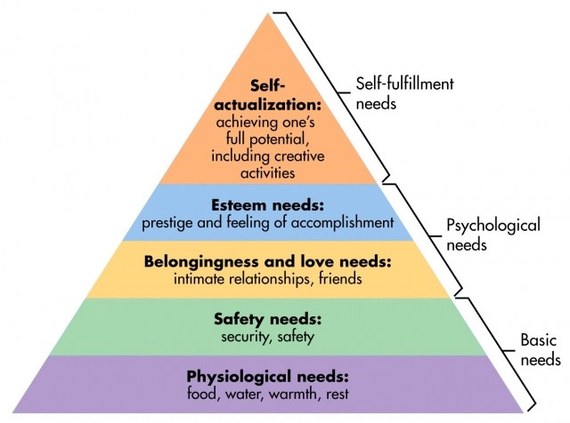der Wille zur Macht translates from German as the “Will to Power” or (in the context of Nietzsche’s philosophical work) the drive for achievement and accomplishment, the extent of one’s ambition, the depth and breadth of one’s drive to improve oneself, grow oneself, to develop one’s gifts, talents and abilities as much as possible, to reach the highest possible station in life.
One could think of “der Wille zur Macht” as the motivation that causes us to climb Maslov’s hierarchy. Humans are complex and their motivations equally so; consider both Viktor Frankl’s concept of logotherapy (man is motivated primarily by a need for meaning) and Freud’s pleasure principle (humans are primarily motivated to seek sex/pleasure). Even Nietzsche acknowledged the need for meaning: “To forget one’s purpose is the commonest form of stupidity.”
While even priests must play and saints must sleep and a healthy amount of rest and relaxation is vital, a life based purely or even primarily on the pursuit of pleasure will almost inevitably be shallow one, a wasted one. I propose a dual combination: a life spent developing one’s talents (Nietzsche’s “der Wille zur Macht”) in service of a noble end (Viktor Frankl’s need for meaning, a life lived with purpose). To me, in my life, that means developing my talents as a leader and a creator of value and prosperity, and to do so via an organization that acknowledges all stakeholders, treats all with respect and honors the social contract. It means getting up every day asking myself how I can go to bed as a better person in a world I have helped make better in some way, no matter how small.
Closing Quotes:
“The individual has always had to struggle to keep from being overwhelmed by the tribe. If you try it, you will be lonely often and sometimes frightened. But no price is too high to pay for the privilege of owning yourself.” – Friedrich Nietzsche, 1844-1900
“Ultimately, man should not ask what the meaning of his life is, but rather must recognize that it is he who is asked. In a word, each man is questioned by life; and he can only answer to life by answering for his own life; to life he can only respond by being responsible.” – Dr. Viktor Frankl, 1905-1997
“Most people do not really want freedom because freedom involves responsibility and most people are frightened of responsibility.” – Sigmund Freud, 1856-1939
As always, I share what I most want/need to learn. – Nathan S. Collier


